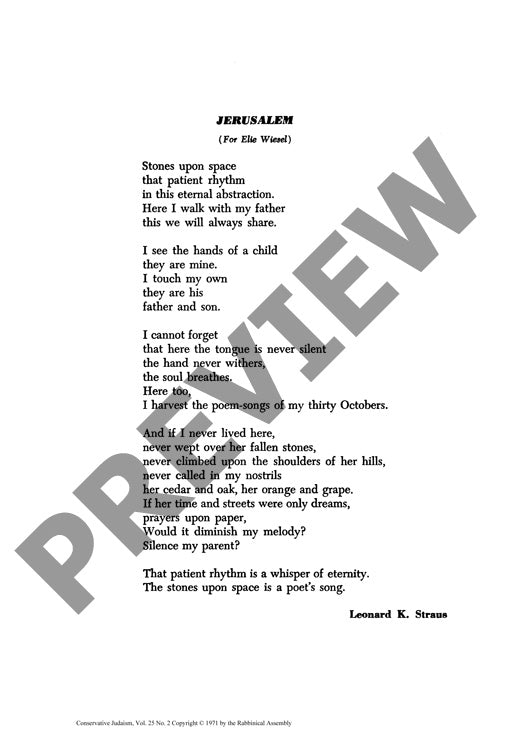Jerusalem for Elie Wiesel
Couldn't load pickup availability
In Leonard K. Straus's 1971 poem "Jerusalem (For Elie Wiesel)," the sacred city emerges as a persistent spiritual reality that transcends physical presence, challenging conventional notions of place-based identity. Through tactile and sensory imagery, Straus bridges vast temporal and spatial distances, creating a dialogue between lived experience and inherited memory that speaks to broader questions of Jewish diaspora and belonging. Literary analysis focusing on imagery, metaphor, and thematic development reveals how the poet constructs meaning around Jerusalem as both geographical location and spiritual concept. The poem's central tension between actual residence and imagined connection demonstrates how Jewish identity can flourish independent of direct physical experience. By examining Straus's treatment of intergenerational continuity and the interplay between physical and metaphysical experiences of place, this research illuminates how cultural and religious memory constitute authentic relationships to sacred geography. These findings contribute significant insights to understanding how contemporary Jewish poetry negotiates themes of diaspora, belonging, and sacred space in the post-Holocaust era.

More Information
-
Physical Description
-
Publication Information
Published 1971
ISBN
-
Publication Credits
Leonard Straus

